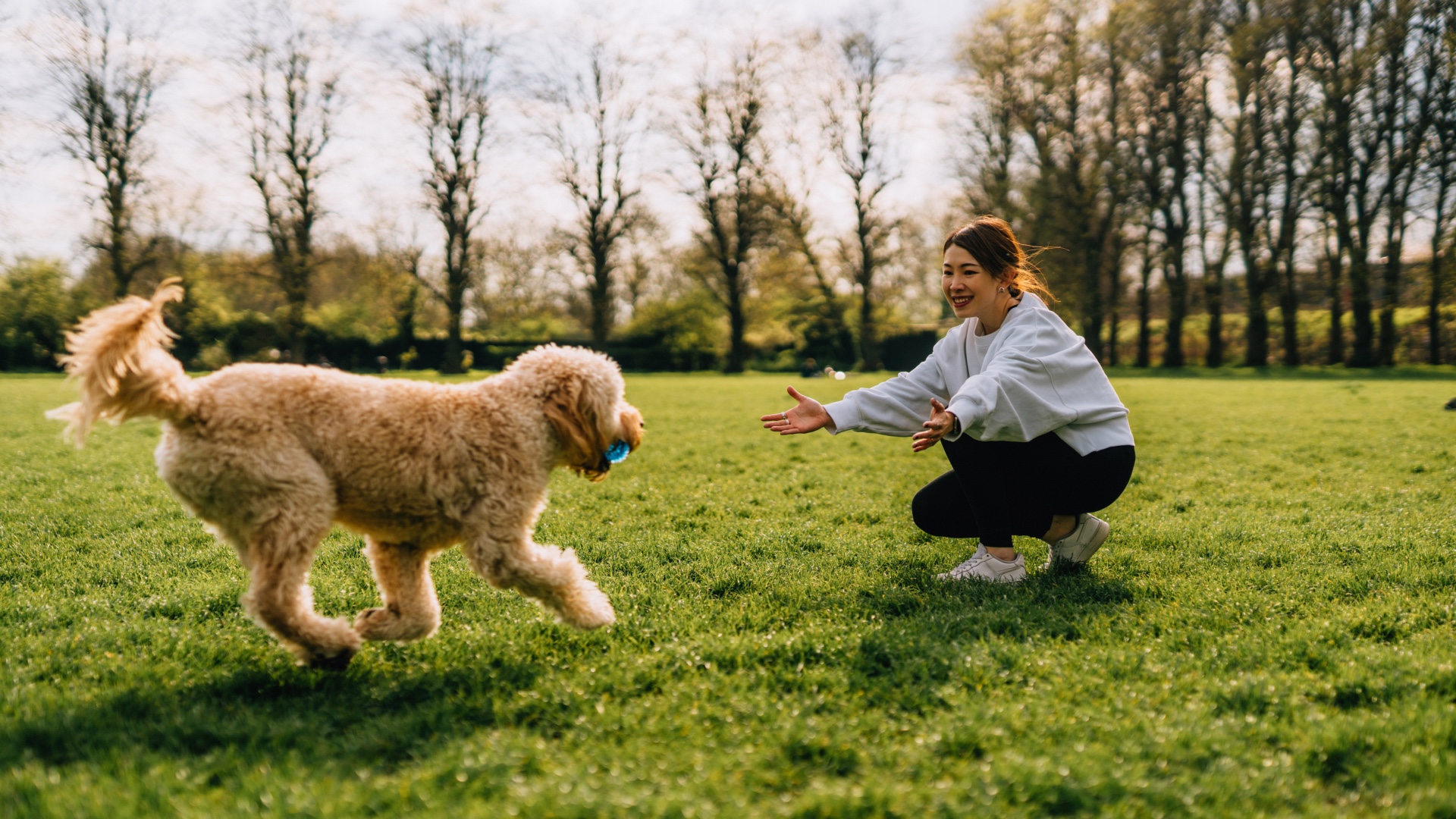
If you're anything like us, you've probably spent tons of time playing fetch with your dog. Most pups love this game because it's super fun and interactive, so surely it must be okay....right?
Well, as it turns out, we were surprised to learn that fetch is nowhere near as harmless as we thought it was. In fact, this popular game actually poses significant risks to our dog's mental and physical health if it's not played with a high degree of thoughtfulness on our part as pet parents.
And here we were thinking that all we had to worry about was making sure we chose the best dog toys for the job!
To help us all understand why fetch may not be a game we want to play too often, expert trainer and behaviorist Renee Rhoades has shared a helpful post to Instagram — and it really got us thinking.
Rhoades begins by saying that when she's discussing fetch, what she's referring to is "an exchange between you and your dog that involves you launching a ball or other similar item for your dog to retrieve. Once retrieved, the item is thrown repeatedly."
While fetch does offer a range of benefits (such as giving your dog an outlet for natural predatory behavior and an opportunity for physical activity), Rhoades says there are five serious drawbacks to the game that you'll want to be aware of.
1. Risk of injury: "Intense fetch sessions can cause repetitive strain injuries, joint problems and accidents resulting in injury," explains Rhoades. While learning how to play with a dog safely can help decrease this risk, it remains a risk nonetheless.
2. Risk of increasing pain: Do you know the signs a dog is in pain? If not, it's worth familiarizing yourself with them as fetch is known to exacerbate pain. "Dogs often hide and play through pain, making it difficult to detect if they are in discomfort from old injuries or disease (arthritis)," Rhoades says.
3. Overarousal: "Overindulgence can lead to a dog having difficulty regulating their arousal in the game and an unwillingness to stop playing," explains Rhoades.
4. Resource guarding: Who knew that resource guarding in dogs could be made worse by playing fetch? Not us that's for sure! But according to Rhoades, your dog may start to highly value their fetch items and become possessive over them when it comes to you and other dogs.
5. Addictive behavior: "Dogs can become addicted to playing, resulting in a hijacked reward system, making this a challenging behavior that needs professional intervention," says Rhoades.
While there's no need to do away with fetch entirely, it's worth being aware of the risks this game poses. And if you do decide you'd like to keep playing fetch with your dog, Rhoades has some tips on how to do it safely:
- Limit play
- Keep sessions short
- Keep intensity low
- Watch for signs of pain
- Have a varied enrichment plan
- Add in breaks for rest/hydration
- Play with larger/less bouncy items
If you're keen to find out more about fetch and hear one dog owners experience of playing this game with her dog, then you might enjoy this article: You're playing fetch with your dog all wrong – make one simple change for a healthier, happier dog.







